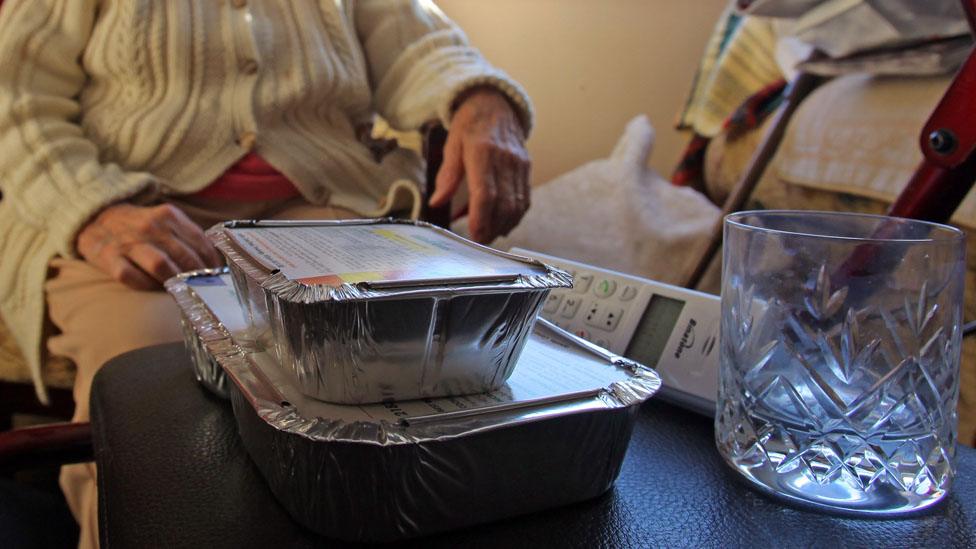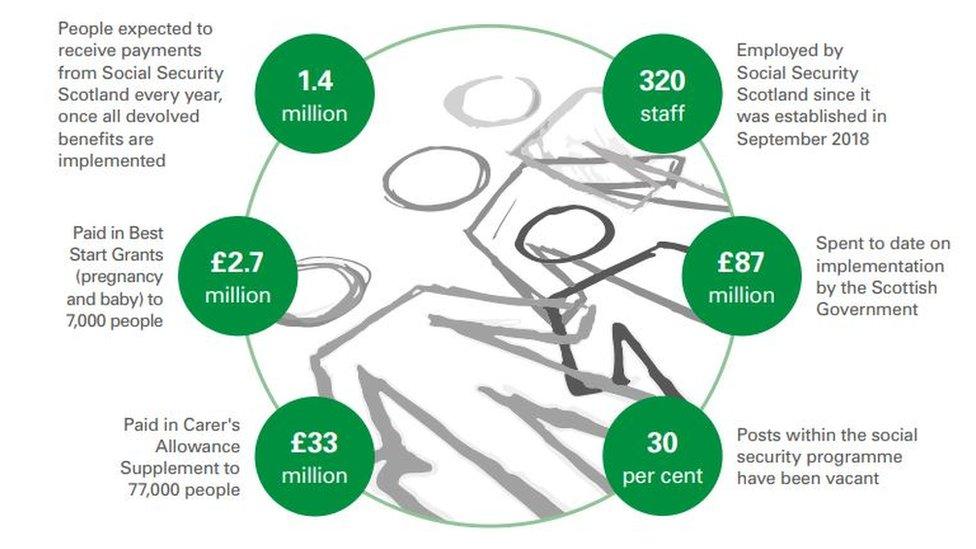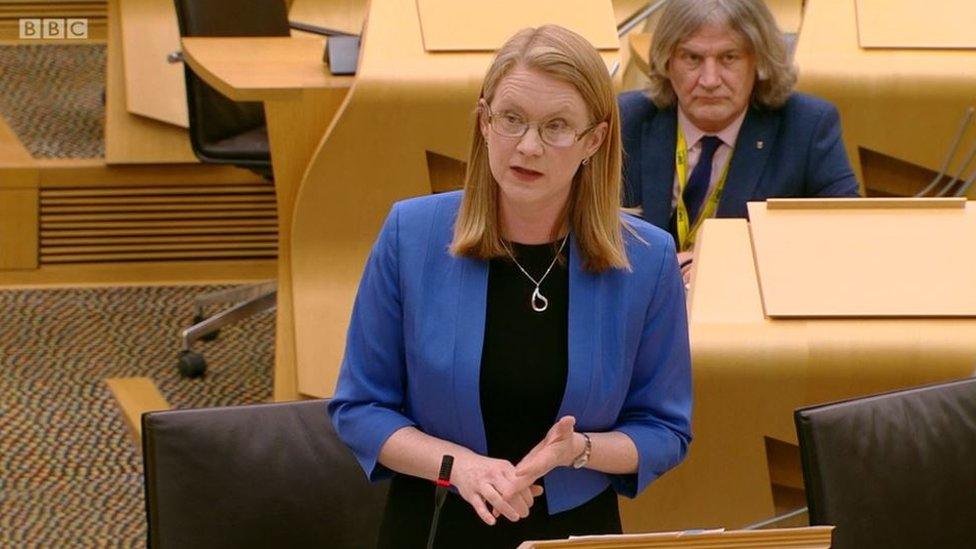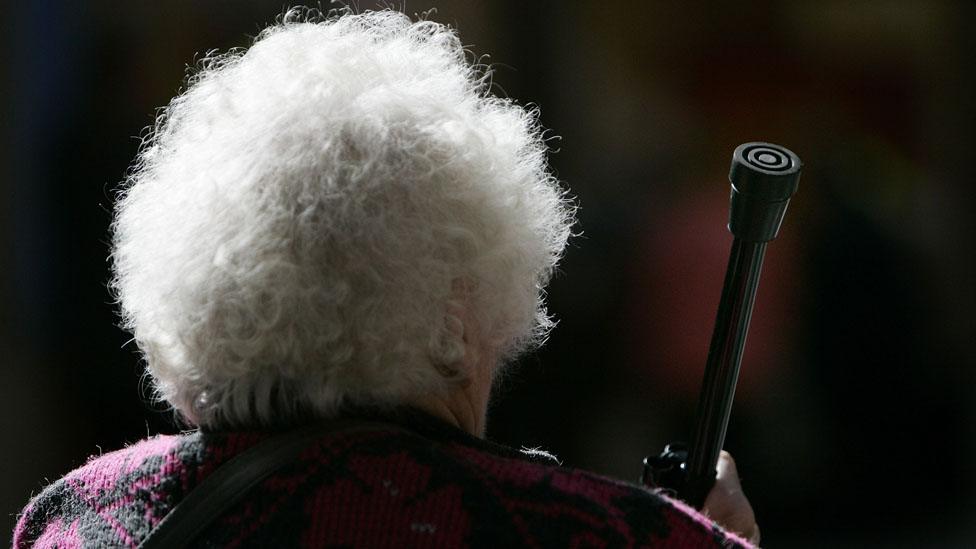'No clear understanding' of new welfare responsibilities
- Published

There is no clear understanding of what is needed to deliver welfare payments to Scotland's expected 1.4 million claimants, Audit Scotland has said.
The warning from the spending watchdog comes as the Scottish government prepares to take over control of 11 benefits from the UK government.
So far almost £90m has been spent on delivering the new benefits system.
However, Audit Scotland said it was still unclear what the overall cost would be.
In its report, external, the spending watchdog said that while the delivery of the first two benefits to be taken on by Social Security Scotland had gone well, the real challenge lay ahead.
The new benefits - the carer's allowance supplement and best start grants - began being given to claimants in 2018.

Figures from Audit Scotland show that £33m was paid to 77,000 people receiving the carer's allowance supplement, while £2.7m was paid to 7,000 people receiving best start grants.
The Scottish government has also spent £87m implementing the new system.
'Draw breath'
However, in the report Scotland's auditor general Caroline Gardner warned that while the Scottish government had done a "good job" delivering the first two benefits, its second phase of delivery included the most complex and highest risk benefits
She also highlighted the difficulties that Social Security Scotland, which is headquartered in Dundee, had encountered employing adequately skilled staff, both in project management and in IT.

Social Security Secretary Shirley-Anne Somerville said seven benefits would be implemented by the end of 2019
Ms Gardner said the vacancy rate was 30%, prompting a reliance on agency staff and contractors and pushing up costs.
She said: "The government has done well to date but has had to work flat out to reach this point, leaving little time to draw breath and plan for the challenges ahead.
"The social security team is doing the right things to address that issue, but it hasn't yet got a clear understanding of what's needed to deliver the more complex benefits to come, or how much it will cost."
She told BBC Radio's Good Morning Scotland programme: "To put it in context, the benefits that have been delivered so far are about 2% of the total £3.5bn that will be involved when it's fully rolled out.
"The government deliberately focused on the benefits that were easier to implement first of all - the one-off payments, the relatively small caseloads and where people's eligibility is easy to assess, new parents for example.
"The disability benefits are very different. More people are involved, assessing eligibility is much more complex and there are regular payments that people will rely on for their living costs, so scaling that up really is a very significant move from the success that has been achieved so far."
'New public service'
Ministers have previously denied their timetable for implementing the new benefits' rollout was unrealistic.
Social Security Secretary Shirley-Anne Somerville said that the government was already taking action to respond to the Audit Scotland report.
She said that they aimed to have delivered three of the 11 devolved benefits by the end of 2019, as well as four new ones to the Scots in most need.

She told Good Morning Scotland: "I very much welcome the report from Audit Scotland. It has recognised that we've done very well to deliver at that very high pace and with significant challenges.
"The evidence from last year shows that we have been able to establish a new public service for Scotland, we are delivering benefits - there's over £197m delivered by Social Security Scotland already directly to low income families and to carers.
Ms Somerville said that she recognised there were challenges ahead for the service but that plans to meet them were already well underway.
She also said that progress was being made on the department's vacancy rate, which had dropped from 30% to 15% in mid April.
'Damning report'
On the overall costs of the service, Ms Somerville said: "The financial memorandum from the social security bill, that was only passed last year, show that the implementation costs were around £308m.
"The steady-state running costs for the agency were estimated to be between £144m-£156m and that replicates and shadows very well what happens within the current system."
The Scottish Conservative spokeswoman for social security, Michelle Ballantyne, said the SNP had spent years complaining about the UK government's approach to benefits but was now finding out how difficult it was to create a fair and sustainable welfare system.
She added: "This report shows that 98% of the annual expenditure on devolved benefits have yet to be delivered.
"They have spent a fortune just to get to this point, and the costs appear to be rising still."
Mark Griffin, Scottish Labour's social security spokesman, said: "This damning report means that vulnerable people in Scotland will continue to suffer at the hands of the Tories while they wait for a devolved system that was meant to bring dignity and respect.
"The SNP have already chosen to leave Scotland's social security powers at the whims of a Tory government, with some disabled people having to wait up to 2024 for their payments to transfer."
- Published26 September 2018
